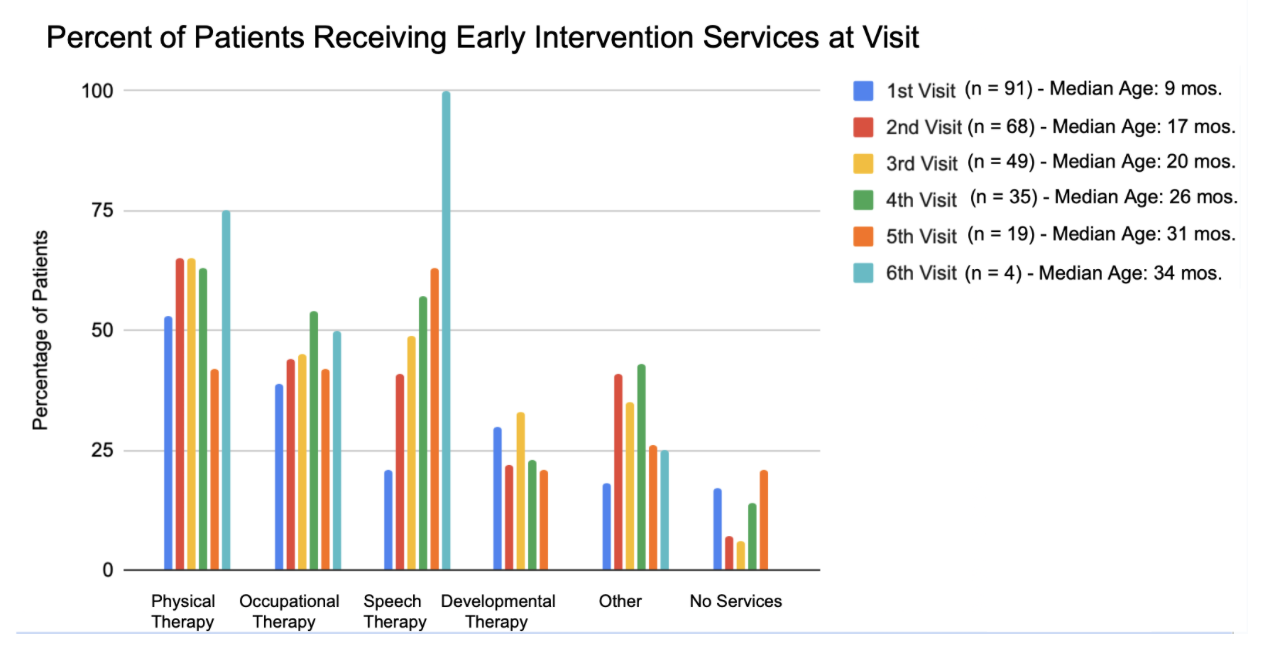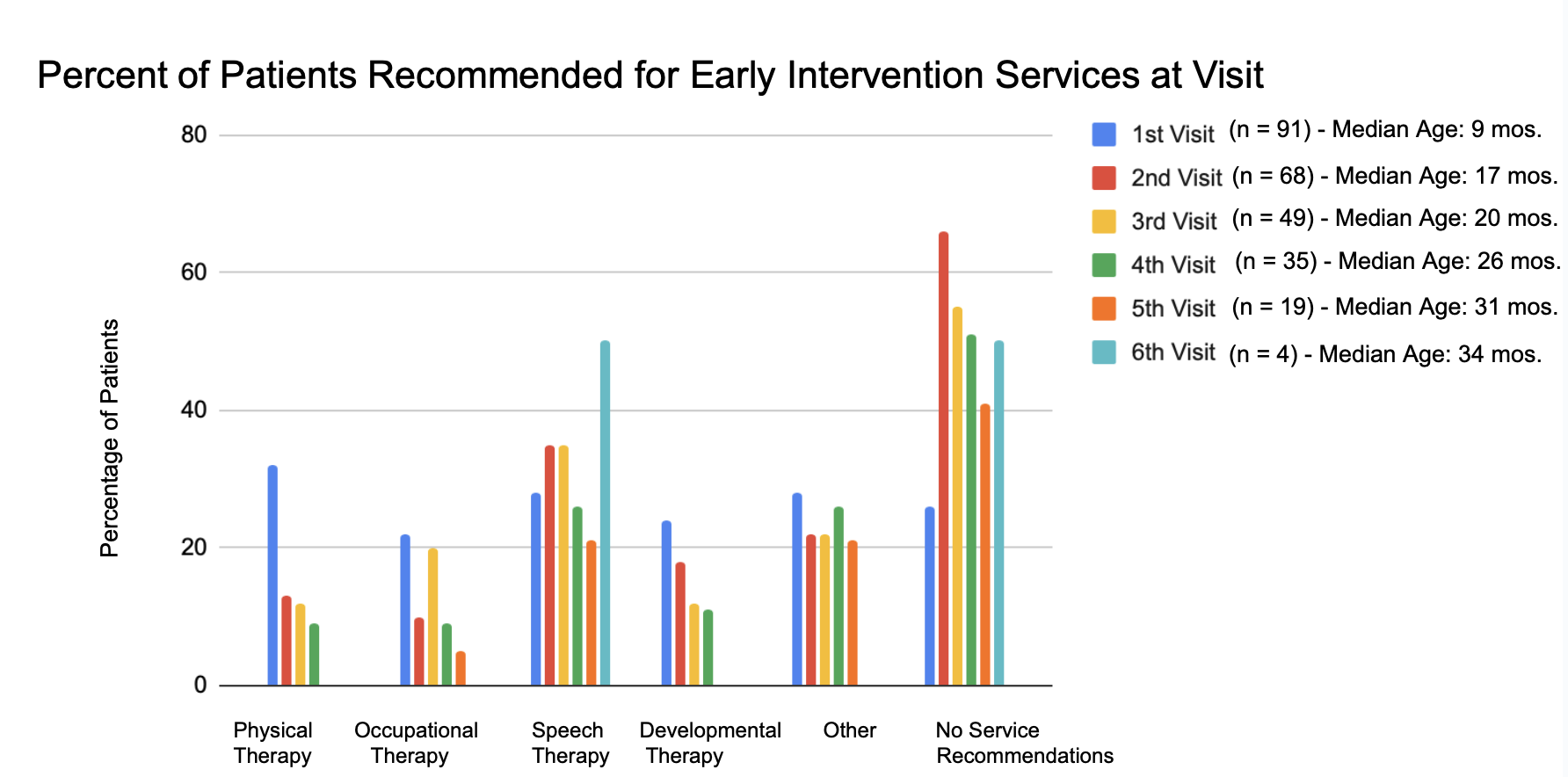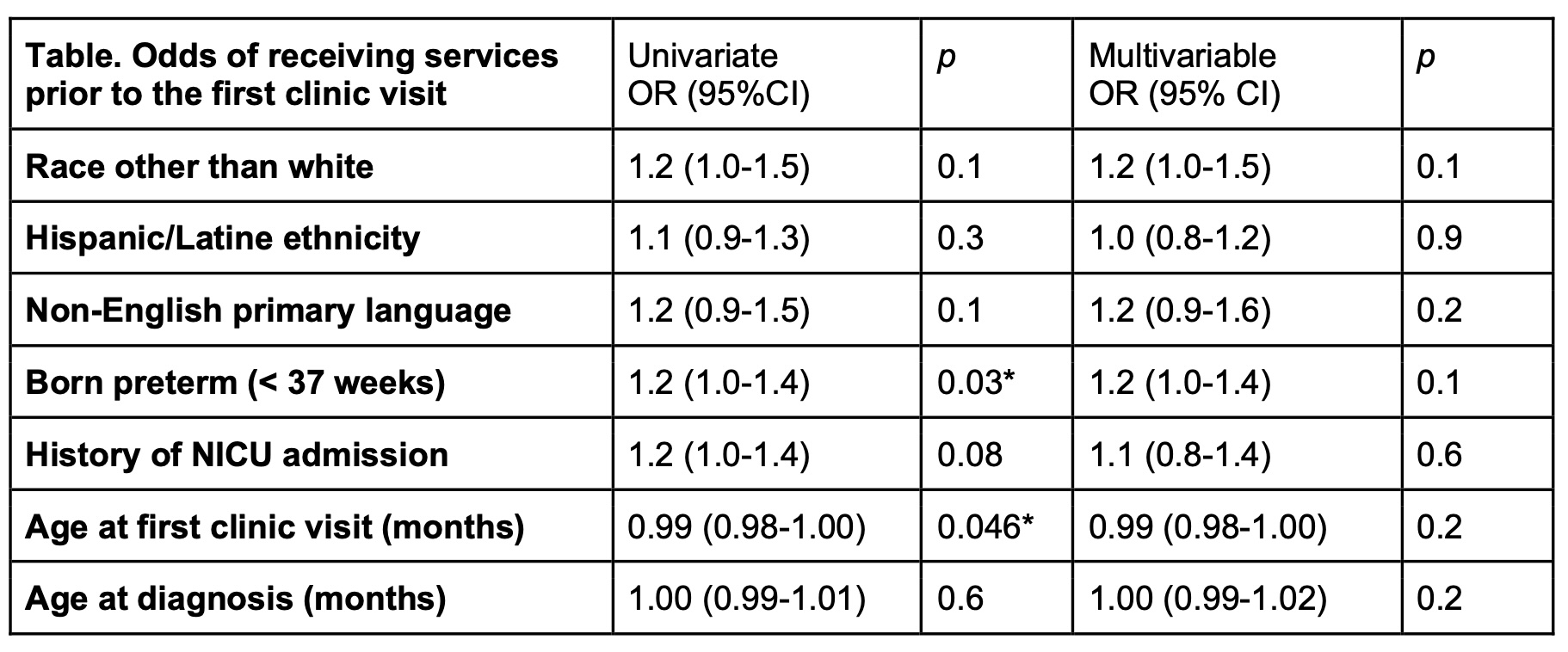Genomics/Epigenomics 1
Session: Genomics/Epigenomics 1
376 - Developmental Support for Infants with Genetic Syndromes
Friday, April 25, 2025
5:30pm - 7:45pm HST
Publication Number: 376.4274
Anna-Thérèse Mehra, Boston Children's Hospital, New Canaan, CT, United States; Samara Shahjahan, Boston Children's Hospital, Cambridge, England, United Kingdom; Hannah Park, Boston Children's Hospital, Boston, MA, United States; Julianna C.. Howland, Boston Children's Hospital, Sherborn, MA, United States; Courtney Verscaj, Boston Children's Hospital, Boston, MA, United States; Paige T. Church, Harvard Medical School, Wenham, MA, United States; Monica Wojcik, Boston Children's Hospital, Boston, MA, United States
- AM
Anna-Thérèse Mehra, BA
Research Assistant
Boston Children's Hospital
New Canaan, Connecticut, United States
Presenting Author(s)
Background: Infants diagnosed with rare genetic syndromes are often at risk for developmental delay. Developmental follow-up programs to support infants following neonatal intensive care unit (NICU) discharge have proven to be beneficial to infants born preterm. We extended this care model to create a specialized follow-up clinic for infants with genetic syndromes, regardless of preterm status or history of NICU admission.
Objective: To assess the impact of a longitudinal developmental support clinic for infants with rare genetic diseases.
Design/Methods: Observational cohort study of infants with genetic syndromes seen in a specialized infant follow-up clinic from 2019-2024, involving biannual visits with a multidisciplinary team (genetics, neonatology, developmental medicine, physical therapy) until age three. Outcomes evaluated included receipt of Early Intervention (EI) services at Visit 1 and unmet needs at subsequent visits; these were considered in light of age at genetic diagnosis and clinic referral, race/ethnicity, and primary language.
Results: Of 91 infants seen, 46 (51%) were female and most (63, 69%) born full term with median GA at birth of 37 weeks (interquartile range [IQR] 36-39). Seven diagnoses were prenatal, median age at postnatal genetic diagnosis was 1.5 months (IQR 0.5-8 months), and 68 (75%) had a history of NICU admission. The majority of the patients identified as white, non-Hispanic/Latine (58, 59%), and 26 (29%) of the cohort identified as Hispanic/Latine (white or other races). Fourteen (15%) required an English language interpreter.
At the first clinic visit, 15 (16%) had not yet established EI services, and 65 (74%) had unmet developmental service needs. Service provisions generally increased across the cohort over time (Fig. 1), and unmet service needs decreased over time in some areas but increased in others (Fig. 2). Autism was diagnosed in 10 (11%) infants (median age of 25 months). In a series of univariate analyses, race, ethnicity, language, age at diagnosis, prematurity, and history of NICU admission were not associated with receipt of EI services at the first clinic visit, although history of preterm delivery was associated with higher odds of EI services and higher age at the first visit with lower odds. These relationships were not significant in a multivariable model (Fig.3).
Conclusion(s): Despite high risk for developmental delay, infants with genetic syndromes are not receiving the developmental supports they need, even those discharged from a NICU (unless born preterm). A collaborative, longitudinal developmental support program addresses gaps in care for these infants.
Figure 1: Early Intervention Services by Visit
 Percent of patients receiving Early Intervention services at each clinic visit
Percent of patients receiving Early Intervention services at each clinic visitFigure 2: Changes Recommended to Early Intervention Services
 Percent of patients recommended for different Early Intervention services at each clinic visit
Percent of patients recommended for different Early Intervention services at each clinic visitFigure 3: Relationship between infant characteristics and receipt of services at the first clinic visit
 OR = odds ratio; CI = confidence interval.
OR = odds ratio; CI = confidence interval.
